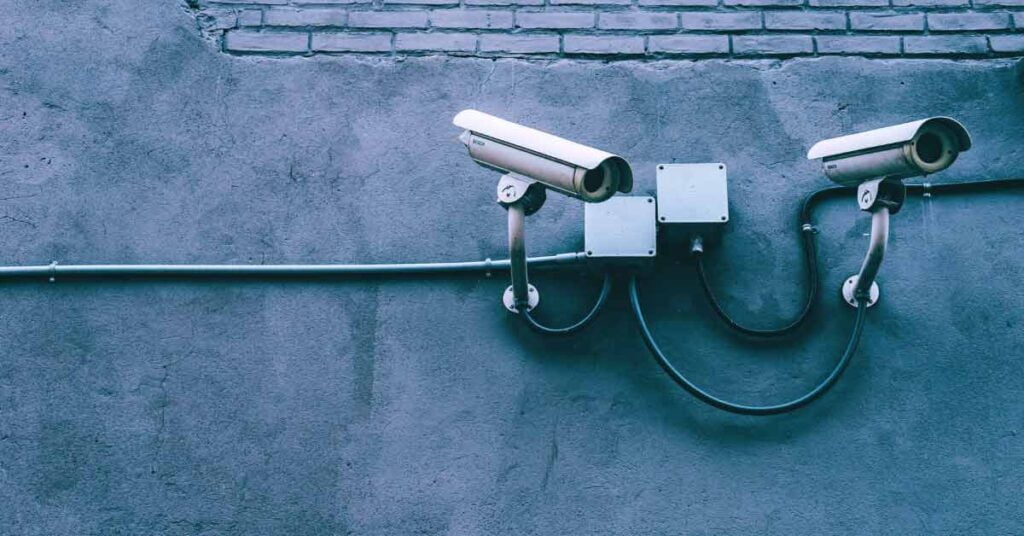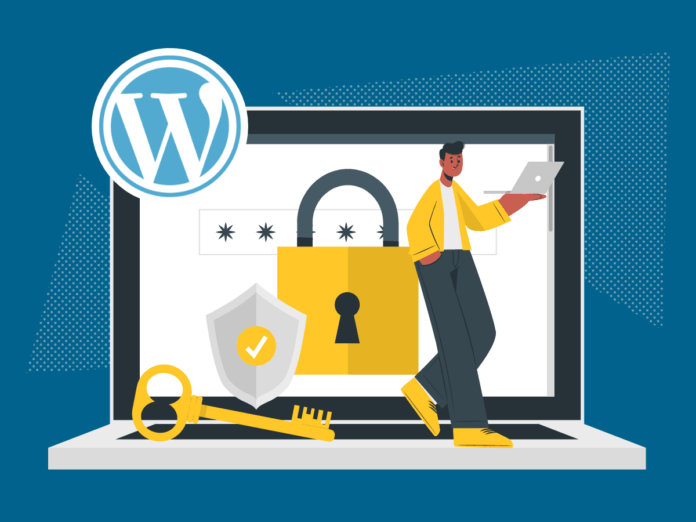Welcome to MCloud9 Blog, your go-to resource for all things web hosting and digital security. In today’s article, we will delve into the world of secure WordPress hosting and provide you with the essential security tips to keep your website protected. As an entrepreneur or business professional, establishing a strong online presence is crucial for the success of your brand. However, the ever-present threat of cyber-attacks and malicious activities can jeopardise your website’s integrity and compromise sensitive data. That’s why it’s essential to prioritise the security of your WordPress website. Let’s explore why safeguarding your WordPress site is vital and discover practical tips to ensure its safety.
Table of Contents
Why Do You Need To Secure a WordPress Website?
WordPress is the most popular content management system (CMS) globally, making up over 69% of the CMS market. However, its popularity also makes it a prime target for hackers and cybercriminals. Without proper security measures, your site may be vulnerable to various threats, such as malware injections, login brute-forcing, and data breaches. Fortifying your WordPress website safeguards your business reputation, protects user information, and ensures uninterrupted functionality. Now, let’s address the common question many website owners have: just how safe is WordPress?
How Safe Is WordPress (WP)?
WordPress itself is a secure platform that prioritises user safety. The core WordPress software undergoes regular updates and security patching to address vulnerabilities and stay one step ahead of emerging threats. However, the security of your WP site relies on various factors, including the hosting setup, your WP configuration, and your adherence to top security practices. With that in mind, let’s dive into the world of secure WordPress hosting and explore the measures you can take to protect your site.
Managed WordPress Hosting: Safe and Secure Hosting Solution
For those seeking the highest level of security and convenience, managed WordPress hosting, like MCloud9, is an excellent choice. With managed hosting, your provider takes care of all security aspects, including updates, backups, and proactive monitoring. This allows you to focus on growing your business while enjoying peace of mind knowing that your website is in good hands.
Learn more about WordPress hosting in our comprehensive WordPress hosting guide.
Understanding Secure WordPress Hosting
When it comes to securing your WP site, choosing the right hosting provider is paramount to protect your WP website from known vulnerabilities, malicious traffic, and potential hack attempts. Additionally, it shields your WordPress database and files from unauthorised access, making it a priority for businesses of all sizes. MCloud9 and other reliable hosting platforms provide a secure environment, advanced security features, and expert support to help you navigate potential security issues.
Keeping your WordPress core, themes, and plugins up to date is crucial for maintaining a secure website
Here are some essential considerations when selecting a secure WordPress hosting package:
- Opt for Managed Hosting: WordPress hosting is a recommended solution for businesses of all sizes. It offers an optimised hosting environment that constantly monitors and secures your website, ensuring maximum protection against threats.
- Regular WordPress Updates: Keeping your WordPress core, themes, and plugins up to date is crucial for maintaining a secure website. Outdated software may contain loopholes that hackers can exploit. A reputable hosting service will often handle automatic updates, reducing the risk of security breaches.
- Utilise a Web Application Firewall (WAF): A WAF acts as a protective shield, monitoring and filtering incoming traffic to block malicious attempts. It adds an extra layer of security to your WP site and helps prevent common vulnerabilities, such as cross-site scripting (XSS) and SQL injections.
Now that we have covered the basics of secure WordPress hosting, let’s explore the top practical security tips to fortify your website against potential threats.
Top Security Tips for Your WordPress Site
Safeguarding Your WordPress (WP) Dashboard: Login Protection
The WordPress dashboard is the gateway to your WP backend, making it a prime target for hackers attempting to gain unauthorised access. To enhance login security, consider implementing the following measures:
- Implement Two-Factor Authentication (2FA): Adding an extra layer of authentication with 2FA significantly improves your WP security. By requiring a verification code in addition to your username and password, you can prevent unauthorised access even if your login credentials are compromised, limiting sign-in attempts, and allowing you to whitelist IP addresses that are able to access your WordPress admin area. In addition, consider adding two-factor security to your hosting control panel to prevent attackers gaining access. MCloud9, includes 2FA with all their WordPress hosting plans.
- Use a Security Plugin to Limit Failed Login Attempts: Brute-force attacks involve automated scripts trying various combinations of usernames and passwords until they gain access. Wordfence, a popular WordPress security plugin, blocked more than 86 billion password attack attempts in 2021. By limiting the number of failed sign-ins, you can mitigate the risk of successful brute-force attacks.
- Change Your WP-Admin Login Page: Modifying the default login page URL for your WP admin area adds an extra layer of security by making it harder for unauthorised actors to target your site. By customising the login page URL, you can effectively reduce the risk of forceful attempts of logging in and unauthorised access attempts. There are a handful of free plugins, like iThemes Security, that make it easy to customise the admin URL.
Keep Your Site Safe: SSL Certificate and Strong Passwords

Encrypting sensitive data transmitted between your website and visitors is essential for maintaining a secure environment. Here are three crucial helpful measures to implement:
- Install an SSL Certificate: An SSL certificate, such as the one offered by MCloud9, establishes a secure connection between your site and visitors’ browsers, encrypting data transmission and providing trust indicators like the padlock icon. This protects user information, such as sign-in credentials and payment details, from interception by unauthorised actors.
- Use Strong Passwords: Weak passwords are an open invitation to hackers. Ensure that your WordPress admin account and all user accounts have strong, unique passwords comprising a mix of uppercase and lowercase letters, numbers, and symbols.
- Avoid Using “admin” as Your Username: When creating your WordPress account, it’s crucial to avoid using generic usernames like “admin.” Opt for a more personalised and unique username or email address. By doing so, you enhance the security of your WP site by making it more difficult for unauthorised individuals to guess your login details.
Backup Your Website Regularly
Creating regular backups of your WP website is an essential precautionary measure that can save you from data loss and help restore your site quickly in the event of a security incident or technical failure. Consider the following backup practices:
- Automated Backup Solutions: Use a reliable backup plugin, like UpdraftPlus, or a hosting service that offers automated backup solutions. Set up a regular backup schedule, ensuring that your files, databases, and configurations are consistently backed up. Regularly backing up your site ensures that you have a clean, up-to-date copy to restore in case of an attack.
- Off-Site Storage: Store your backups in an off-site location separate from your hosting server. This ensures that your backups remain accessible even if your hosting environment is compromised.
- Test Restoration: Regularly test the restoration process to verify the integrity of your backups. Ensure that you can successfully restore your website from the backups and that all functionalities are preserved.
By implementing robust security monitoring and maintaining regular backups, you add an extra layer of protection to your WP website, allowing for prompt threat detection and efficient recovery in case of an incident.
WordPress Security: File System, Plugins & Theme Security Measures
Many WordPress themes and add-ons you use on your WordPress site can introduce vulnerabilities if not managed properly. According to iThemes, there were an average of 121 plugins and themes that had a vulnerability publicised in 2022. Here are some tips to bolster your site’s security in this regard:
There were an average of 121 plugins and themes that had a vulnerability publicised in 2022
- Choose Reliable Themes and Plugins: When selecting themes and extensions for your WP site, opt for reputable sources and regularly update them. Avoid using outdated or abandoned software/themes, as they may contain unpatched vulnerabilities. A plugin vulnerability can allow a hacker to gain access to your WP website and potentially cause damage or steal confidential information
- Update your WordPress core, themes and plugins: Regularly keeping your WordPress installation, plugin, and theme files ensures that you have the latest security patches and bug fixes, reducing the risk of exploitation by unauthorised actors. Usually, this is done for you with managed WP hosting.
- Secure File Permissions: Set appropriate file permissions to restrict unauthorised access to sensitive files on your server. Limit write permissions to essential files and directories to prevent malicious code injections.
Dealing With Malware: Protecting Your WordPress Site
WordPress security plugins are valuable tools that can automate security tasks and strengthen your site’s defences. Here are some key features to consider when choosing a security plugin:
- Malware Scanning: Look for a plugin that performs regular virus scans to identify and remove malicious code from your website. We recommend WordFence and iThemes Security as good security plugins for WordPress.
- Firewall Protection: A security plugin with a built-in firewall can help block suspicious traffic and provide additional protection against hackers and bots.
- Login Security Enhancements: Choose a plugin that offers features like IP blocking, CAPTCHA integration, and sign-in activity monitoring to detect and prevent unauthorised access.
Implement Website Security Monitoring

In addition to preventive measures, it is important to have active security monitoring in place to detect and respond to potential threats in real time. Consider the following practices:
- Intrusion Detection System (IDS): Implement an IDS that constantly monitors your website for suspicious activities, unauthorised access attempts, and known patterns of harmful behaviour. An IDS can help identify and block potential threats before they cause significant harm.
- Security Auditing: Conduct regular security audits to assess WordPress loopholes, identify potential weaknesses, and address them promptly. This involves scanning for outdated software versions, weak passwords, file permissions, and potential security gaps in your configuration.
- Log Monitoring: Keep a close eye on your website’s logs to identify any abnormal or suspicious activities. Logs can provide valuable insights into potential security breaches and help you take immediate action.
FAQ for Secure WordPress Hosting
Can I secure my WordPress site without using a security plugin?
While security plugins provide convenient automation, you can enhance your security manually by following top practices, performing security scans, keeping software updated, and maintaining strong passwords and two-factor authentication (2FA).
How often should I update my WordPress plugins and themes?
It is best practice to update your themes and add-ons as soon as updates become available. Regular updates address security loopholes and ensure compatibility with the latest version of WordPress. Usually, this is done for you automatically with managed WP hosting.
How does secure WordPress hosting prevent hack attempts?
Secure WordPress Hosting prevents hack attempts by offering great security for your website, including edge security features such as DDoS protection, firewall, and virus scans. It also educates users on security basics and encourages good security practices to prevent security breaches.
What is the main benefit of using a cloud hosting solution for my WordPress website?
The main benefit of using cloud hosting for your WP website is uptime and scalability. Cloud services can handle high levels of traffic while continuing to perform at optimal levels and offer backups of your site in case of a catastrophic failure.
In Conclusion
Securing your WordPress website is vital for maintaining a safe online presence. Implementing the security tips mentioned in this article can fortify your site against potential threats and protect your business’s reputation and sensitive data. MCloud9 offers WordPress hosting with high security, excellent performance, reliable support, and free SSL certificates. With features like cPanel hosting, LiteSpeed web server, SSD storage, and CloudLinux OS, MCloud9 ensures your website remains secure and performs optimally.
Elevate your WordPress hosting with MCloud9’s secure and reliable solution. Experience peace of mind knowing your website is in good hands. Visit MCloud9 now to explore their WordPress hosting plans and take the first step toward a secure and successful online presence.


